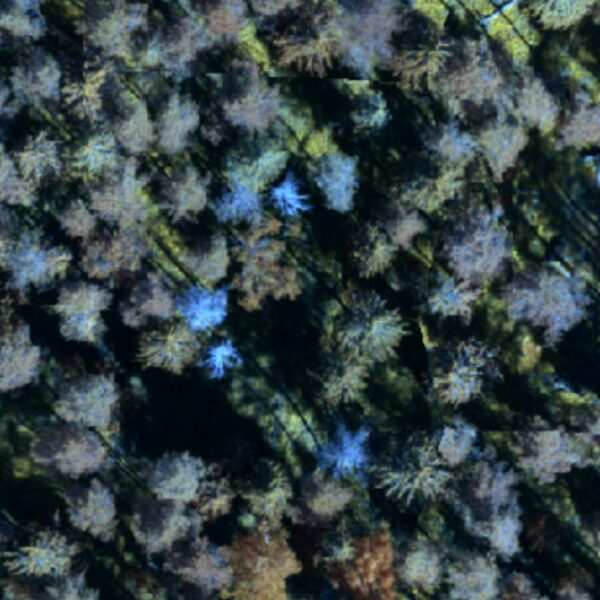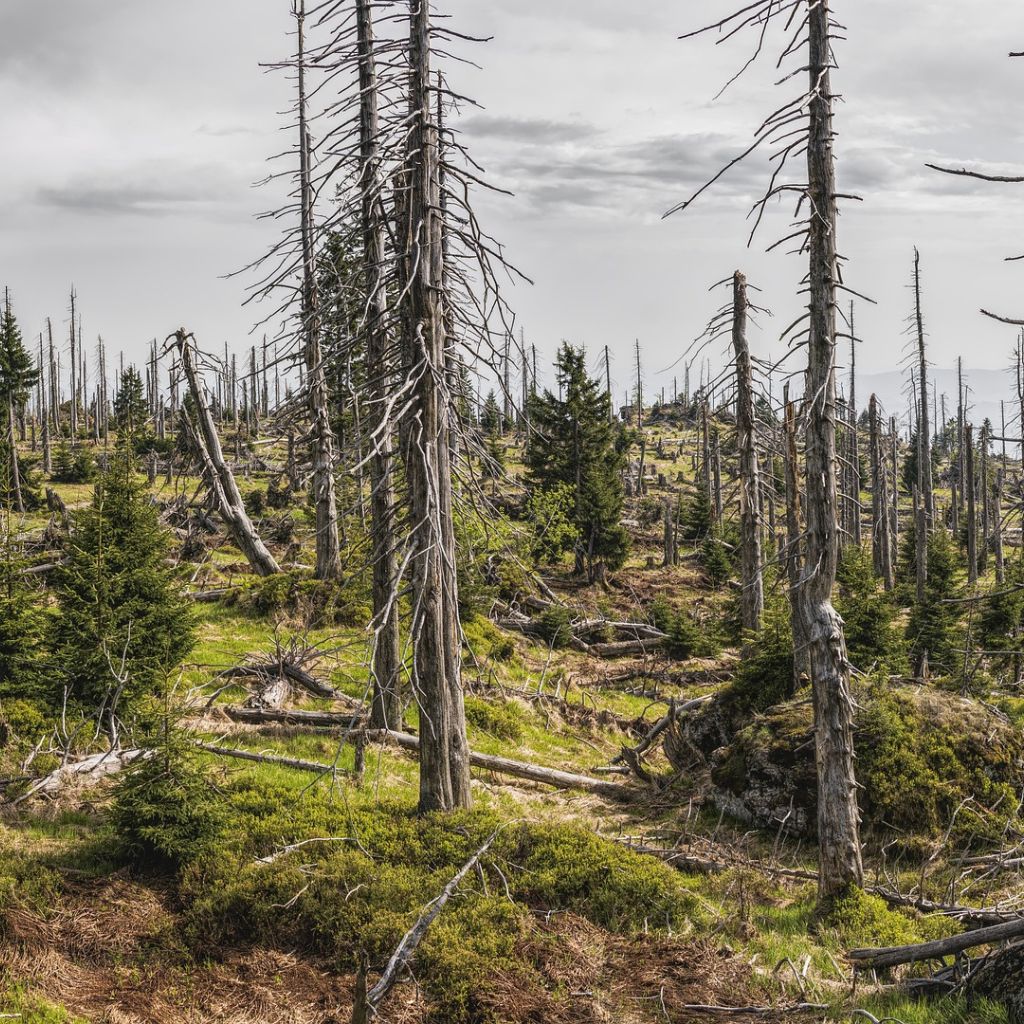However, one certainty remains: it imposes an unnecessary financial burden and significantly affects both forest health and carbon sequestration.
Bark beetle outbreaks weaken forest ecosystems, reduce their overall health and productivity, and have long-term economic consequences that impact the sustainable supply of timber and other forest products. Bark beetle outbreaks also compromise one of the most critical assets in combating the climate crisis—the forests themselves. As forests play a vital role in carbon sequestration, the negative effects of bark beetle infestations on tree growth and health contribute to a reduction in their carbon storage capacity. Therefore, addressing bark beetle outbreaks is crucial not only for economic sustainability but also for preserving the invaluable role forests play in mitigating climate change.
The High Price of Bark Beetle Outbreaks
Bark beetles infest and kill trees, leading to a loss of timber resources. The economic impact of timber loss can be significant, especially in areas with extensive forest industries. The value of lost timber can run into hundreds of millions of euros, depending on the scale of the outbreak.
Dealing with a bark beetle outbreak often requires costly measures for forest restoration and management, which have long-term economic consequences. These measures, including salvage logging, replanting, and reforestation efforts, become necessary not only to mitigate further damage and restore the affected forest but also to address the negative impact on carbon sequestration and the sustainable supply of timber and other forest products.
Harnessing AI for Early Detection and Management of Bark Beetles
AI plays a crucial role in detecting bark beetles. By analyzing various datasets and leveraging advanced algorithms, AI models can swiftly identify distinct patterns and characteristics associated with bark beetle infestations. This enables early detection of bark beetle infestations, allowing forest owners to take prompt actions to prevent further spread.
AI algorithms process vast amounts of data collected from various sources, such as satellite imagery and ground-based surveys, enhancing the accuracy and efficiency of detection efforts. AI-powered solutions can continuously monitor forests, providing near real-time insights and analysis of signs of bark beetle activity, facilitating proactive intervention and minimizing potential damage to tree populations.
The Advantages of Early Detection of Bark Beetles
AI technology offers invaluable support in the battle against bark beetles, enabling timely response, mitigating economical losses, and securing the health of forests. Early detection and targeted measures help mitigate economic losses by reducing tree mortality, maintaining timber yields, and preserving the value of forested lands. Taking proactive measures to address infestations is crucial in preserving the health of forests and preventing the loss of valuable trees. It also prevents the need for expensive post-outbreak salvage operations and reforestation efforts.

The advantages of early detection of bark beetle outbreaks extend beyond timber savings, encompassing a broader range of benefits. Early detection provides valuable information for forest owners to plan and allocate resources effectively. By continuously monitoring forests, they can develop proactive strategies, such as preventive treatments, silvicultural practices, and forest management plans to mitigate the impact of future outbreaks. This preparedness approach helps build resilience in forest ecosystems and secure the vitality of the forests.
Forest ecosystems are complex networks of interdependent plants, animals, and microorganisms. Bark beetles can disrupt this delicate balance by causing tree mortality and altering forest structure. Early detection helps mitigate the impact of beetle outbreaks on forest ecosystems, preserving biodiversity and ecosystem functions. By actively monitoring and managing these outbreaks, we can promote sustainable forest practices and preserve the forests for future generations.
Let the World’s Most Powerful Forest AI Platform Help You Deal With Your Bark Beetle Risk
In response to the critical need of protecting forests from pests like bark beetles, Metsä Group and CollectiveCrunch have combined their expertise to provide an innovative solution that equips forest owners with detailed and timely information about potential threats in forests.
With our near real-time spatial insect damage monitoring solution, any relevant change in forests can be indicated in a timely manner. The analysis is updated several times during the growing season, providing forest owners with an up-to-date status of their forest assets.
Our solution provides early detection of bark beetles and helps take preventive measures to secure the health of forests. It also offers accurate forest inventories, including species distribution and stand volume, which helps estimate the monetary value of damaged areas. By providing early detection and ongoing monitoring, we are proactively addressing forest health issues, ensuring that forests remain healthy, vibrant, and ecologically and economically productive.

The more red the area, more severe the damage in the forest.
Interested in learning more about our solution? Book a free demo or contact us for more information!




